- Home
- Sebastian Faulks
Charlotte Gray Page 3
Charlotte Gray Read online
Page 3
Daisy Forester laughed, and her round, guileless face broke open. ‘Darling, don’t be naive.’ She looked at Charlotte more closely. ‘You’re awfully smart, aren’t you?’ She went up and felt the lapel of Charlotte’s suit. ‘It’s lovely. Is it Jaeger? I do love their clothes, but Mummy gives me such a piffling allowance I really can’t afford anything nice. Look at me.’
Charlotte did. She wore a tight fawn sweater that made her breasts bulge, a single rope of pearls, a brown tweed skirt, woollen stockings and battered brown court shoes. Actually, Charlotte thought, she didn’t look too bad. She began to say so, but Daisy interrupted her.
‘I’d better show you your bedroom. It’s tiny, I’m afraid, but you know we’re jolly lucky to have anywhere at all. There’s such a scrum for flats at the moment.’
‘Why?’ asked Charlotte, thinking of the spacious Georgian houses of the New Town. Why on earth would people fight over a cramped and icy little place like this?
Daisy looked at her in surprise. ‘Because of the Germans, dear. They’ve knocked down most of the houses in London. Hadn’t you noticed?’
Charlotte’s room was at right angles to the end of the hall. It had been sliced from the adjacent room by the addition of a plasterboard partition that bisected the ceiling rose of the original, larger room. It had a small chest of drawers with tear-drop brass handles and a glass top pressing on a kind of lace doily. There was a bed with a damson-coloured candlewick counterpane, one upright chair and a grimed single window over the street. It was flanked by lime-green curtains, unlined, on metal runners in a rusty track.
It was difficult for both women to be in the room at the same time, and impossible when Charlotte tried to introduce the suitcases as well.
‘I think I’ll unpack in the hall, if you don’t mind,’ she said, ‘and carry the clothes in.’
‘Good idea. You’ve got quite a lot of clothes, haven’t you?’ Charlotte could tell what Daisy was thinking before she said, ‘Do you think we’re about the same size?’
Charlotte began, ‘I think maybe I’m a bit—’
‘More or less, I’d say. Perhaps I’m a bit bustier.’ Daisy looked at Charlotte with her head on one side. ‘Mind you, you’re not exactly flat, are you?’
Charlotte laughed, not knowing what else to do, and said, ‘I’ll just make a start on this one,’ as she undid the larger of the two cases.
Daisy had taken the morning off work and did not leave until almost midday. ‘It’s frightfully dreary,’ she said. ‘I work for the Red Cross. It’s grisly work, but the office is in St James’s so there’s lots going on. I’ve convinced Mummy that my work there is absolutely vital for the war effort and that’s why she lets me stay on in London. She’d be much happier if I went down to dreary old Gloucestershire really.’
‘Does she worry about you?’
‘Oh yes. All the time. I’m not frightened, though. If there’s a bomb with my name on it then that’s just bad luck. I must fly. I’ll be back about six. There’s a spare key on the hall table. Sally’ll probably be back before me.’
‘Sally?’
‘The other girl who lives here. Didn’t you know? She’s got this ghastly boyfriend called Terence. I’ll tell you about him later. He’s very high up in the Navy. Make yourself at home.’
The first thing Charlotte did when she was alone was to clear the tea things. The kitchen looked out over a small garden and the back of the terrace beyond; there were some tins of food in the glass-fronted cupboards and a part-eaten loaf of bread on a wooden board. The room had an only half-inhabited quality.
The rest of the flat did not take long to explore. Next to Charlotte’s room, the other side of the partition, was another bedroom. It was slightly larger, but equally cold; it had a hanging rail on wheels with a number of women’s clothes. It also looked over the street, though it had a greyish lace curtain over the window; on the bedside table was a book called Love in a Harem, and tucked in beneath the counterpane was an eyeless teddy bear. Sally’s room, Charlotte presumed.
The largest of the three bedrooms had a photograph of Daisy on the chest of drawers; next to it was one of what Charlotte took to be Daisy’s parents – the man in spectacles, baldish, moustached, vaguely medical or academic-looking; the woman dark, round-faced with pretty eyes, a slightly more spiritual but perhaps also more vacuous version of Daisy – and, tucked between the mirror and its wooden frame, a young man with crinkly hair in army uniform. Daisy’s silver hairbrushes were laid out among the pots of cream and powder. An open lipstick stuck up between them, and Charlotte had to restrain herself from winding it back into its base. The bed, unlike Sally’s, was not properly made; the eiderdown had been hastily straightened over the tangle of blankets beneath. There was a volume of Swinburne’s poems on the bedside table and a copy of The Great Gatsby. This room, unlike the others, had a built-in clothes cupboard, and Charlotte could see a sliver of purple chiffon caught in its door. The walls were painted an indulgent crimson; there was a French couronne above the bed, from which hung some scarlet patterned fabric. On the wall was a reproduction of a Burne-Jones painting, all muscular breastplates and knightly, coiled desire.
Charlotte went to change her clothes. Because she had been living with her parents for the last two months, her mother had supervised her packing and had insisted on a sheet of tissue paper between each layer. Her mother, Charlotte knew, had dreaded her departure, yet was aware that in some way it would simplify her own life.
Amelia Gray was amazed by her daughter, proud, and shocked by her. There seemed no limit to what the girl thought she could accomplish by herself. She had swallowed all the education she was offered without apparent effort, though it was five times what had been available in the suburban ladies’ establishment she had herself attended thirty years before. Charlotte seemed impatient of the values of her mother’s generation, yet she retained a personal delicacy in her dealings with other people, an almost excessive reticence, a lack of trust, from whose likely cause her mother turned her gaze away. Charlotte had sprung from most unpromising beginnings.
In the autumn of 1916 Amelia Gray’s husband returned on leave from the Western Front to visit his wife and their three-year-old son Roderick. In his quizzical, doctor’s eye his wife saw some exquisite pain. He prowled the house, unamused by books or conversation, silently tearing at himself. She thought of Nessus and his shirt of flame. He went for walks along the edge of the moor, then retired to the inn by the river. He would have stayed all evening, but the landlord was a proper Christian man who would not stay open late to serve a soldier on leave, even if he was an officer.
Amelia Gray at first feared that during his time away he had found another woman. He appeared to feel guilty towards his own wife; it was as though he was anxious to be back in France. When she tried to search his mind, approaching him gently with oblique questions, he tossed his head and muttered some short phrase to cut her off. He had always been stoical, but his emotional state was now close to nullity. It seemed to his wife that he was oppressed by some unbearable secret, yet it was something that was not of his own making. She herself occasionally had a dream – common, her husband professionally told her, to many people – in which she found she had committed a murder, of which she had no recollection: all she had was the knowledge of her guilt and the fact of being hunted. Her husband wore the look of someone who had made the same discovery about himself; he seemed unable to cope with the knowledge he had unwillingly acquired, but his intellectual pride and medical detachment made him unable to confide.
When he made love to her it was with a disinterested passion. She was aware of his eyes examining her, him, both of them, as their bodies went through the attitudes of surrender and possession. This natural act held for him no healing or forgetfulness; in the animal but tender moments he could not shed himself. His wife looked up and saw his eyes wide open, as though his consciousness of what he did would not leave him.
From these leave-time coupli
ngs a second child was conceived: Charlotte, a child of the war years, as her father frighteningly reminded her. He seemed to think it curious that she could have chosen to be born at that time of universal death; he sometimes looked at her as though she were insensitive, or perverse.
He had survived, but did not seem to feel himself lucky. Deprived of the daily emergencies of war, he had lost his framework of denial. The medical authorities took an enlightened view of returning veterans and he was allowed a short sabbatical before resuming his work. Soon afterwards his wife persuaded him that Roderick would be better off at boarding school. As her husband’s struggle developed, Amelia Gray was aware that the main casualty was Charlotte. No motherly fussing over tissue paper, no last-minute indulgences from Princes Street, could take away the knowledge that she had failed her daughter.
The War had ended for ever Europe’s centuries-long dream of itself as a continent chosen or blessed. Amelia Gray felt that her failure with Charlotte lay in her inability to protect the child from the aftershocks of the cataclysm.
Daisy Forester arrived home that evening with exciting news. Sally’s ghastly boyfriend Terence had got them all invited to a literary party and the place would be swarming with delectable poets.
Charlotte felt she had not earned the right to an invitation.
‘Don’t worry, half the people there’ll be gatecrashers. What are you going to wear?’
‘I don’t know. I’m a bit tired, really. Maybe I’ll just—’
‘Don’t be silly. You can borrow something of mine if you like. You look nice in that skirt. You suit navy.’
Charlotte could not resist Daisy, though she tried. She found herself shepherded into the bathroom and told to have first bath. ‘Leave the water, won’t you?’ Daisy called through the door.
Charlotte saw why when she turned on the tap. The big cylinder above the bath roared like a bomber on take-off, but the scalding water came only at a trickle down its narrow pipe. The room was draped in underclothes in all conditions, from the still damp to the almost desiccated. Charlotte wiped a swathe through the misting mirror on the cabinet and washed her face in cold water while she waited for the bath to fill. She did not want to go to this party, any party, but she would do it to please Daisy: if she seemed too aloof, Daisy might complain to her mother in Gloucestershire, who in turn might tell Charlotte’s mother in Edinburgh. It was through the ancient friendship of the two women, though they never saw each other any more, that her place in the flat had been arranged; and even if it was not much of a flat, she owed Daisy something.
Charlotte undressed and folded her clothes on top of the linen basket. As she lay back in the bath she wondered how Sally would compare to Daisy. The teddy bear in bed, the ‘high-up’ naval officer, the literary party . . . perhaps the gathering would be in honour of the author of Love in a Harem. Charlotte felt her face adopt what her mother called her minister of the kirk expression and stopped herself.
She climbed reluctantly from the bath to let Daisy have a turn before the water lost its heat and stood on the cork mat to dry herself.
‘Jolly good, you’re out already,’ said Daisy, who was suddenly in the room.
Charlotte presumed Daisy would back out when she saw that she had interrupted, but Daisy merely started to undress, pulling her jumper over her head to reveal the top of a much-worn slip beneath. Wrapped in a towel, Charlotte gathered up her clothes and made her way down the icy hall.
The party was in a flat in Redcliffe Square, only ten minutes’ walk along unlit streets. Daisy wore a blue silk dress; Charlotte wore a skirt and a jacket with a velvet collar and a narrow belt. Arriving at the party was like walking into a scene from the Inferno; it was what Doré might have etched if only he had known. Under the low, settled cloud of cigarette smoke Charlotte could see nothing but bodies pressed together, shouting. She could not make out the shape of the room, though the scale of the building and the double doors through which they had entered suggested something spacious, and the intensity of noise could not have been generated by fewer than 150 people. By the door, a little bald man with a bow-tie and exophthalmic eyes was addressing a tense and occasionally stammering soldier.
‘Of course,’ the small man was saying, ‘the hope was that Laval would turn his duplicity to the defeat of the Germans. But that Auvergnat dishonesty is only ever self-serving. They should have read La Rochefoucauld.’
‘Of c-c-course.’
‘There’s Sally,’ said Daisy. ‘Come with me.’
Charlotte sidestepped her way through the press, her face aching with the number of mouthed apologies she made as she followed in Daisy’s powerful slipstream. Sally was standing by a marble fireplace; she had brown, glistening hair and wide-set eyes. Her voice was high and childlike as she introduced Charlotte to a man called Terence, presumably the ghastly Terence, standing next to her.
‘Let me get you girls a drink,’ he said. ‘Gin or whisky? I think the sherry’s all gone.’ He was a big man with a frizz of fair hair retreating from a fleshy, shining face.
‘Have you seen anyone you know?’ said Daisy.
‘The man we met at the Ring of Bells – the one who told us he was a trumpeter. There’s that famous poet. I can’t remember his name.’
‘Give me a clue, darling.’
‘You remember,’ said Sally, ‘the one who wrote those poems.’
‘Is the party for anything in particular?’ said Charlotte.
Sally reached into her bag and pulled out an invitation.
‘How clever of you,’ said Daisy. ‘I didn’t think you’d actually got a card.’
Charlotte looked at it: The Directors of the Flagstaff Press invite you to celebrate the publication of The Frontier Pass & Other Poems by W. S. Melrose. ‘Which one’s Melrose?’ she asked.
‘No idea,’ said Sally. ‘He’s not very famous, is he?’
Terence pushed back with two glasses of warm gin and French, and a whisky for himself. He raised his glass to them, then drank with thirsty sucking noises.
A lugubrious-looking man with a beard was trying to climb on to a table. Charlotte looked on with some surprise as he established his footing, helped by two laughing women. He was too cumbersome and too paunchily middle-aged to be trying such tricks, but from the jacket of a tweed suit he extracted a bunch of papers which he waved in the air.
He called for silence in a bass voice whose natural resonance was muffled by the heaving room. Next to Charlotte a short and voluble man with grey-streaked sandy hair was squeezing the arm of a young woman in a black velvet dress. ‘I thought we might try to do something on old W. S. in next week’s paper,’ he loudly confided, to the woman’s evident satisfaction. Charlotte watched as the man looked up, registered her presence, smiled at her in a candidly lubricious way, then suddenly looked troubled as he saw someone making for him through the throng. ‘Excuse me, darling,’ Charlotte heard him whisper to the woman in the black dress as he moved off: ‘bore-raid warning.’
The party extended a conditional silence to the table-top speaker as conversation died to a grudging simmer. The bearded man, clearly feeling he needed no introduction, offered none, but appeared to be Melrose’s publisher. From the papers clasped in his fist, he constructed a speech about the importance of Melrose’s poetry. His appreciative remarks about the poems were interspersed with frequent references to the Government’s printing restrictions so Melrose emerged less as a powerful voice against Fascism than as a peevish critic of rationing. Before the publisher had finished his remarks the conversation had resumed a level that rendered him inaudible; his generous wish that everyone recharge their glasses had been widely anticipated.
Charlotte looked round to find that Daisy had disappeared from her side. Terence was leaning over Sally and tickling her beneath the chin while Sally looked bashfully entranced.
Charlotte saw Daisy – a few feet away, but unreachably far in the crowd – talking to two young men, one in army uniform, the other in a corduroy
jacket; Daisy looked happy and poised between them. Charlotte did not feel she could impose herself on them, even if she could have barged her way that far.
She drifted from the edge of the group where she had been standing and moved deliberately round the rim of the party. Her mother had told her as an anxious teenager that the way to find someone to talk to was to be quite candid about her solitude: if she could be brave enough to let people see that she was alone, then soon enough someone would take pity. Charlotte went slowly round the edge of various groups, pausing to sip her drink, looking as honestly alone as she could in such a confined space. She elicited an occasional glance, a half-smile, but no offer of conversation. She found that she was back by the double doors by which she and Daisy had come in: the temptation was obvious.
She stepped out on to the landing and was on the point of tripping quickly down the stairs when she remembered her coat, which had been taken to a bedroom. As she turned, she saw a table with a pile of books. They were all copies of The Frontier Pass & Other Poems by W. S. Melrose. On the back was a photograph of the author: a man with a face like a rare-breed sheep in giant black spectacles. She picked up a book and opened it at random.
We are not any more the waiting-to-be-judged,
Barbarous refugees in the cold waiting rooms of
The six o’clock express. We are gathered in the
Soft sigh of History, where others have dissolved
But are not dead. We are sleeping, but our bodies
Do not sleep amid the howling of the greatest Lie.
‘What are they like?’
‘Not bad,’ said Charlotte, looking up towards the clipped English voice. It was the man from the train.
‘Dick Cannerley. You remember, we met yesterday and—’
‘Yes, I do. What a coincidence. Are you a friend of Mr Melrose?’
‘God, no.’ Cannerley laughed. ‘Is anyone? I’m a friend of Michael Waterslow’s. It’s his flat. Come on, I’ll introduce you.’

 Devil May Care
Devil May Care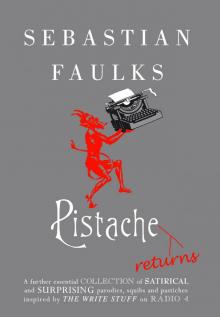 Pistache Returns
Pistache Returns The Girl at the Lion D'Or
The Girl at the Lion D'Or Pistache
Pistache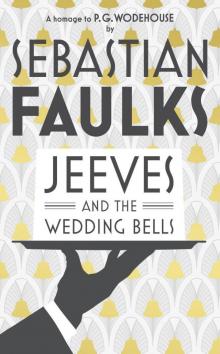 Jeeves and the Wedding Bells
Jeeves and the Wedding Bells A Week in December
A Week in December The Vintage Book of War Stories
The Vintage Book of War Stories Engleby
Engleby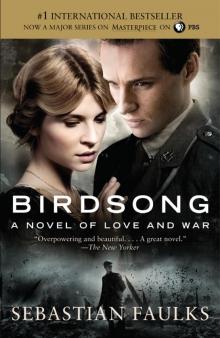 Birdsong
Birdsong Jack Firebrace's War
Jack Firebrace's War Where My Heart Used to Beat
Where My Heart Used to Beat A Possible Life
A Possible Life The Fatal Englishman: Three Short Lives
The Fatal Englishman: Three Short Lives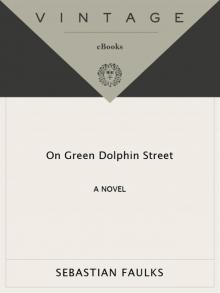 On Green Dolphin Street
On Green Dolphin Street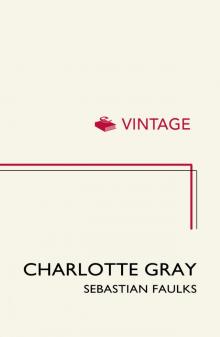 Charlotte Gray
Charlotte Gray A Broken World: Letters, Diaries and Memories of the Great War
A Broken World: Letters, Diaries and Memories of the Great War Human Traces
Human Traces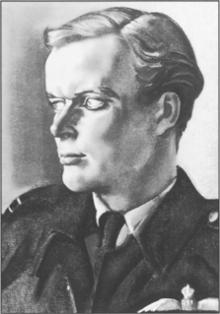 The Fatal Englishman
The Fatal Englishman A Broken World
A Broken World Paris Echo
Paris Echo War Stories
War Stories Girl At the Lion d'Or
Girl At the Lion d'Or